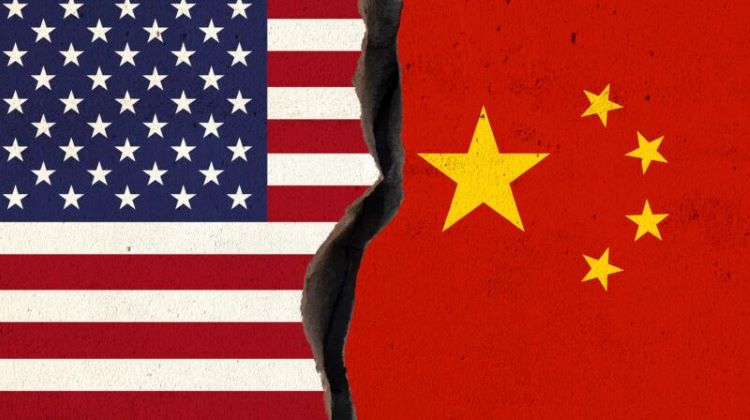Anamika Dey, editor
Brief news
- Recent positive economic indicators, including decreasing inflation and rising consumer sentiment, create a challenging mandate for the next U.S. president to maintain growth while addressing voter dissatisfaction.
- Candidates Trump and Harris propose contrasting economic policies, with Trump favoring tax cuts and tariffs, while Harris aims to increase corporate taxes and prevent price gouging.
- Economists emphasize the importance of balancing economic growth with reforms to address the concerns of lower and middle-income Americans, as many still feel left behind despite overall economic improvements.
Detailed news
Over the course of the past week, there has been a surge of exceptionally positive economic news, which might create a difficult mandate for the person who is chosen as the next president of the United States: Do not mess it up.
It is anticipated that inflation will decrease even further from its pandemic peaks in the days leading up to the election on November 5. Additionally, private job creation is exceeding estimates, pending home sales data is popping, consumer sentiment is surging toward optimism, and gross domestic product is growing at a rapid pace, albeit slightly below some expectancies.
According to Morning Consult, the S&P 500 has increased by more than 50% since President Joe Biden assumed office in January 2021 and by 24% thus far this year.
“Do you remember how we were on the verge of entering a depression and things like that? Can you guess what? We are the nation with the most robust economy in the entire planet. A statement made by Vice President Joe Biden on Tuesday, during an event held in the Port of Baltimore to announce new infrastructure awards, was addressed to the entire darn globe.
Both former President Donald Trump and Vice President Kamala Harris are positioning themselves as the most effective guardians of the future health of the U.S. economy.
Simultaneously, both candidates are endeavoring to position themselves as a departure from the status quo, acknowledging the persistent dissatisfaction of voters with the economy, despite the robust macro-level data.
According to a YouGov poll conducted in October, forty-four percent of adult respondents in the United States believe that “total economic collapse” is at least somewhat, if not very, likely. The margin of error was plus/minus 3.8 percentage points, and the poll was conducted from October 17 to October 19. It surveyed 1,113 adult citizens in the United States.
Trump and Harris have both introduced a series of policy proposals that assure Americans of a new economic future in response to the electorate’s economic pessimism.
Universal tariffs on all imports from all countries, a comprehensive immigrant deportation program, and a deepening of corporate tax cuts are among the promises made by Trump.
Economists and even some of Trump’s own allies have observed that his proposed universal tariffs, mass deportations, and tax cuts could, at least temporarily, cause significant shockwaves throughout the economy, potentially leading to market collapses.
Meanwhile, Harris proposes to increase corporate tax rates, implement a federal prohibition on corporate “price gouging” in the grocery sector, and offer subsidies and tax credits for housing development, child care, and other purposes.
The vice president has been the subject of criticism from economists and corporate leaders in America due to her proposed prohibition on price profiteering and her intentions to increase corporate taxes.
Justin Wolfers, a professor of public policy and economics at the University of Michigan, stated that the next president will have the opportunity to concentrate on the policies on which they campaigned, given the stable economy.
In contrast, Wolfers stated that both former President Barack Obama and Biden assumed office during a period in which “stabilizing the economy would have to take precedence over any of their typical governing priorities.” “Rather than pursuing their programs, they were compelled to extinguish the recessionary fire.”
Wolfers asserted that the presidential election is rendered even more significant by the current circumstances.
“Whether you are a Democrat or a Republican, you have one responsibility: to address the recession,” he stated. “However, if Trump desires tax cuts for the wealthy and Harris desires to tax the wealthy in order to provide concessions to the middle and working class, they may each have the ability to implement their respective proposals.”
In either scenario, the subsequent president will be required to maintain a precarious equilibrium: Maintain the present trajectory of real economic growth while fulfilling their commitments to reform an economy that voters appear to dislike.
Biden was compelled to implement a comprehensive economic rescue plan in response to the Covid-19 pandemic, which devastated the American economy. This plan allowed him to implement substantial stimulus legislation and other comprehensive policies that were designed to maintain the stability of American households and businesses.
Biden is getting ready to depart the White House, and the robust economic data that have been coming out over the past several weeks assist to support his argument that his government, together with the Federal Reserve, has successfully landed the economy, even if the American people have not yet seen the effects of this.
In a post that was published on X on Wednesday, Moody’s Chief Economist Mark Zandi stated, “It is too difficult to see the economy showing signs of improvement.” There are a significant number of Americans with lower and intermediate incomes who are not benefiting as much as they ought to be. It is imperative that the upcoming President and Congress prioritize the process of bringing about this change.
Source : CNBC News



